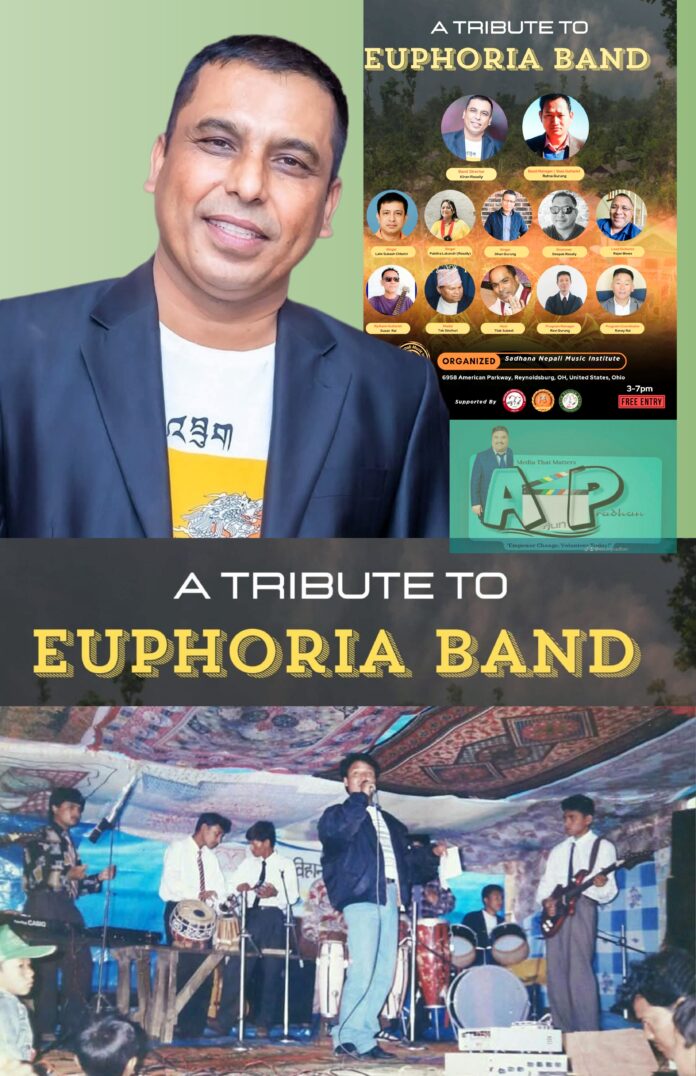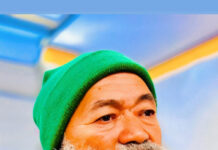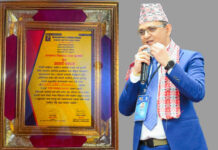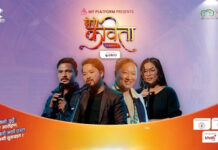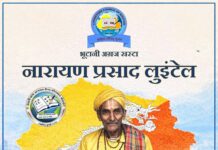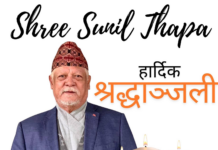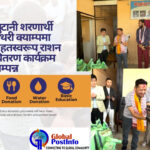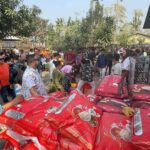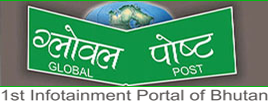Honoring His Musical Journey at the Appreciation Award USA
Euphoria Band was formed in 1995 under the management of Ratna Gurung and the leadership of Kiran Biswa(Rasaily). Before its formation, small musical groups already existed in all seven Bhutanese Refugee Camps in Eastern Nepal.
Refugee camps in Nepal: Kiran had his own group in Timai; Ratna and Amal in Beldangi; Agom led a dance group in Beldangi 1; Ram Gurung in Goldhap; and Manoj with Damber Khapung in Khudnabari.
What made Euphoria stoodout as the first Bhutanese Refugee Band was its cross-camp lineup, dedicated singers, and the introduction of modern band instruments—electric guitars, effect pedals, keyboards, and drums—for the first time in the refugee camps.
Their journey began with a debut concert in Beldangi 1 (1996), organized by Raney Rai’s
Shito-Ryu Karate team, followed by an all-camp tour in 1997. In 1998, they played in
Budhobarey (Jhapa) and Bhadrapur College; in 1999, in Kanyam with popular Nepali national artist Kuber Rai, Ilam; and in early 2000, at Hotel Moon, Biratnagar. Euphoria was supported by very talented dancers and commedians with their performances in their camp concerts.
Founding band members:
Tilak – Program Host
Kiran – Keyboards and Vocal
Ratna – Bass Guitar
Rajan – Lead Guitar
Susan – Rhythm Guitar
Deepak – Drums
Tek – Tabla/Madal/ Percussion
Subash – Vocal
Dhan – Vocal
Pabitra – Vocal
Raney – Program Coordinator
Ravi – Program Manager
Euphoria Band remains a pioneering symbol of resilience and creativity—born in the camps, yet echoing far beyond them.
Kiran da, welcome to the United States! How does it feel to be here for Euphoria’s first Appreciation Award after so many years?
Namaste Arzun bhai, Thank you for thinking of me as well as Euphoria through your media.
Honestly, I did not expect a Tribute to me and my Band Euphoria because we were not visible in the community after Euphoria’s Concert tour in the refugee camps in Nepal in 1996. It is very emotional to know that Euphoria’s contribution is still in the hearts of our young artists. Wow.
• What was running through your mind when you received the invitation to the Appreciation Award Event?
I was shocked and surprised. I never thought that Euphoria is still in the hearts of our young artists. I am finding it hard to believe it.
• This Event is a tribute to the Euphoria Band — what does that name mean to you personally?
Bhai, It reminds me of those difficult days when Euphoria tried to soothe the pain of all our fellow refugees in the refugee camp in Nepal through music even though we did not have anything. We were able to bring different talents in the refugee camp on the stage. It was the beginning of the bands in the refugee camps.
• How do you see this event helping to connect Nepali and Bhutanese artists living abroad?
Bhai, this event is not about connecting Nepali and Bhutanese artists. It is about acknowledging our own artists. It is about thanking our own musicians who made a contribution to the community through music.
• Even though the event has been postponed, what message would you like to share with your fans and well-wishers who were waiting to see you?
Unfortunately the Event had to be posponed . But this event is a wonderful opportunity for meany my band Euphoria to Thank all the Bhutanese Nepali fans and well wishers in public. I would like to thank the Event Organizing Committee on Euphoria’s behalf for this wonderful opportunity .
• Your journey from Bhutan to Australia and now to the U.S. is quite inspiring.
How has that shaped you as an artist?
As an artist, I carry all three: the discipline of honoring tradition, the joy of exploration, and the drive to create something that speaks across borders.
• What has been the biggest lesson music has taught you through all these transitions?
I have learned that music is not just an entertainment. It is spiritual. It is holy. It is a part of your life. It is very deep and devine and you need a heart to feel it.
• Who or what has been your biggest influence along the way?
My grand dad who bought my first guitar in 1985.
• You’ve worked hard to preserve Nepali and Bhutanese music abroad. Why do you think cultural roots are so important in today’s world?
I do not think that I am preserving Nepali and Bhutanese music abroad but I would definitely say that I am trying to take Bhutanese nepali music beyond borders to the global listeners.
• Do you feel music can be a bridge between the older and younger generations of our diaspora?
Yes, as long as the young generation do not forget who they are and where they have come from. These days music has just become a part of an entertainment and immitation. It is very important for the younger generation to learn from the elders and share it to other. Music is the most beautiful language to communicate . Music do not fight. It unites. We should learn to feel the beat in our heart and rhythm in our lder generation.
• What do you want people to feel when they listen to your music ?
My music may not be the music that our people listen to every day. We are so much influenced by the music from Nepal. My music is different and it speaks a volume of sofisticated blend of cultures and emotions and a fusion of East and the West. I am trying to keep it as an identity of Bhutanese Nepali music.
• What kind of collaborations or projects are you hoping to do while in the U.S.?
At the moment, I will be meeting our new artists (Bhutanese Nepali) and talk about supporting our own home grown artists more.
• And lastly, when you look back years from now, what do you hope this first U.S. trip will represent in your musical journey?
Our people might start loving their own music and valueing our own artists more.
Additional massage to all Bhutanese community ?
Our music tells a story about us and our journey. It gives us our own identity. Therefore, It is time for us to love our own music, literature and culture so that we are not lost one day.


